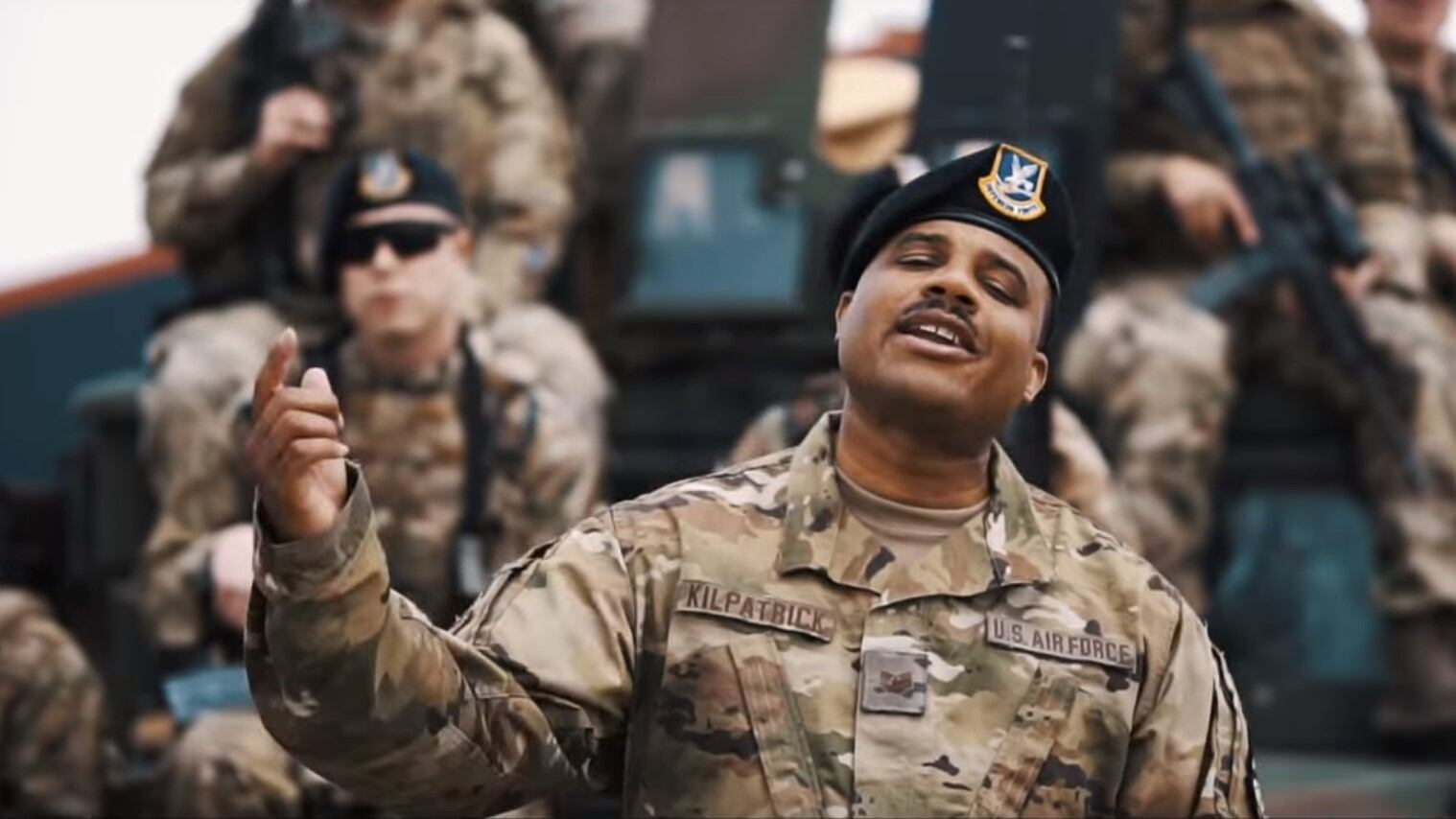For more than eight decades, American airmen have belted out what is now known as the U.S. Air Force Song at graduations, ceremonies, Memorial Day celebrations and bars.
Its iconic opening line — “Off we go, into the wild blue yonder” — is instantly recognizable, and captures the derring-do attitude of the service at its best.
But the song’s third verse, a bridge which begins, “Here’s a toast to the host/Of those who love the vastness of the sky/To a friend we send a message of his brother men who fly,” didn’t sit right with Air Force Chief of Staff Gen. Dave Goldfein. The verse also serves as the academy’s school song and is sung after athletic events.
At the Air Force Association’s conference in Orlando, Florida, Thursday, Goldfein recalled attending a women’s volleyball tournament at the Pentagon last year, when the U.S. Air Force Academy thoroughly beat the other service academy teams.
As Goldfein sang the third verse of the Air Force Song with the female cadets, it was apparent to him that the lyrics left them out, even as the U.S. Naval Academy and the U.S. Military Academy at West Point had both updated their songs more than a decade ago.
So, Goldfein said, he’s ordered the song to be tweaked slightly, to reflect that fact that women serve in the Air Force.
“These are the women we will ask to go into combat and fight, just as women have done for a generation,” Goldfein said in remarks posted on the Air Force’s web site. “Yet this version of the song, their alma mater, was not about them. … It is time for us to change.”
The third line of the verse will now be sung, “To a friend we send a message of the brave who serve on high.” And the final line of that verse, which originally went “A toast to the host of men we boast, the U.S. Air Force!” has been changed to “A toast to the host of those we boast, the U.S. Air Force!”
Goldfein said a team of airmen and academy cadets last year updated the lyrics to reflect the Air Force’s history, the accomplishments of all who have served, and “the rich diversity that makes today’s Air Force indisputably the strongest and most capable in the world.”
RELATED

Air Force Academy Superintendent Jay Silveria has been authorized to use the new version of the song, which is traditionally sung during the academy’s graduations.
Goldfein acknowledged the changes will likely prove controversial and draw strong emotions and debate. He said he respects the opinions of those who disagree. But, he said, these changes “are about adding to, not subtracting from, who we are. Changing the lyrics in no way diminishes the history and accomplishments of men or dilutes our eternal gratitude for their sacrifice and bravery.”
“These new lyrics speak more accurately to all we do, all that we are, and all that we strive to be as a profession of arms,” Goldfein said. “They add proper respect and recognition to everyone who serves and who has served. This respect and recognition is not only appropriate, it is fully earned.”
Goldfein cited the service of several notable female airmen, including Arizona Sen. Martha McSally, who is a retired colonel and the first woman in the Air Force to command a combat aviation squadron.
It’s not the first time the song has been updated. It originally was titled “The Army Air Corps” and boasted, “Nothing’ll stop the Army Air Corps!” before being updated in 1949 to reflect the Air Force’s new, independent status.
The Air Force will keep looking to see if the other verses of the song need further updates, Goldfein said. Right now, for example, the second verse begins “Minds of men fashioned a crate of thunder” and then references “Hands of men” and “Souls of men,” and the final verse has the line “Flying men, guarding the nation’s border.”
Stephen Losey is the air warfare reporter for Defense News. He previously covered leadership and personnel issues at Air Force Times, and the Pentagon, special operations and air warfare at Military.com. He has traveled to the Middle East to cover U.S. Air Force operations.





